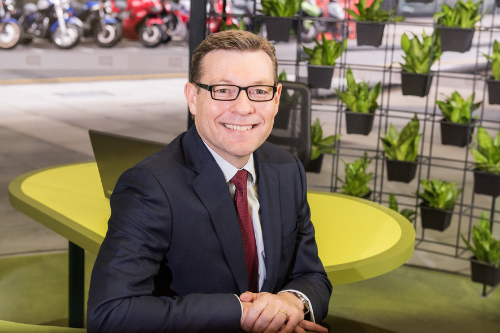

People’s Choice CEO Steve Laidlaw has given Australian Broker a status report as their merger with Heritage Bank goes through due diligence.
Laidlaw was speaking on the back of strong FY21 results for his side of the merger, with People’s Choice posting a $29.7 million NPAT and solid growth in the residential sector.
“We’re pleased with our results, they certainly met our expectations,” he said. “They were a little bit down on the prior year, but that’s expected as we’re about 70% of the way through a material transformation program which is in the order of around $100m.”
“That’s largely technology, building an architecture within our tech space that’s going to allow us to give digital-first offerings of a high order to our members, which can them evolve over time.”
“We had good growth for the last quarter – we got out of the blocks a little slower than we would have liked but the last quarter was a record for us. We ended up growing by 3.3% in residential loans for the full year and that momentum is very strong for the first couple of months of this year.”
“We made the decision to move into brokers in Victoria. We’d had a relationship with brokers in the Northern Territory when we purchased TIO Bank, and the move into brokers in Victoria has been very successful for us.”
“We’re working with PLAN and around 30% of the business that we’re writing in Victoria is now broker-originated, so that’s going well.”
Heritage also announced strong results recently, and Laidlaw explained that due diligence is now ongoing ahead of the merger that they announced last month.
“The key point of difference between our results and Heritage is that we’re about 18 months ahead in terms of the tech program,” he said. “We’ve had a good look at both businesses and the underlying performances are very similar. In virtually all respects, the organisations are about the same size, which is why we think that it works so well as a merger of equals.”
“They have a much stronger history in the broker market, and originate around 60% of their business through brokers, whereas we’ve been around 10%. We’d be looking to move up to around a 50/50 split over the medium term.”
“We’re very excited about the merger. It’ll make us the largest mutual ADI in the country and the first mutual that has a reasonable geographic spread, with the exception of WA.”
“We’re about two weeks into due diligence at the moment, we don’t expect anything to come out of it with us both being strong, member-oriented organisations. The process is working well and has been well-received by our members and staff on both organisation’s sides.”
“We just started the process of tech improvement a little before they did, and their track is going to be similar to ours. The likelihood is that they’ll be adopting a lot of the tech that we’re developing, though having said that, they’ve got some strong tech and payments done in areas that we’ll be adopting.”
People’s Choice – Heritage Bank merger vital to help customer-owned bank sector
For Laidlaw, the merger is vital for creating a mutual sector that can last long into the future, especially given new customer expectations and increasing regulation from government.
“The challenge for the mutual sector as a whole is that Covid has jumped us ahead five to ten years in terms of digital evolution,” he said. “While branches are going to have a role going forward, they’re going to have to be more interactional rather than transactional.”
“The Millennial demographic has a strong propensity to want to deal with organisations through digital channels, and you need to make sure that the services and products that you offer through those channels are contemporary.”
“Also, you have to have the ability to evolve rapidly to meet the increasing expectations around service and to make sure that you have a clear understanding of what members want and how they want to be serviced.”
“You need a tech capability that is agile and can evolve over time to remain relevant, and also offer that first-class digital experience.”
“That costs a lot of money and it’s going to be a real challenge for the smaller mutual ADIs to meet that expectation. If you overlay that with the enormous amount of regulatory requirements that’s coming, scale is really important.”
“However, the relationship that both organisations have with their members, the deep history in their communities, coupled with the necessary investment in technology will put the merged entity in a very strong place.”
“As we’ve seen with the fintechs, the difficulty they have is that they don’t have that history or affinity with their customer base. Furthermore, they’re starting from a position of zero and it takes a very long time for banking startups to start returning any form of income back to their shareholders.”
“We think we’re very well placed in terms of our size, which is big enough to make the investment but not overly big to be cumbersome and not be able to make these changes, which is what you’re seeing with the major banks who are working on such a scale that its enormously difficult.”
“We’re happy where we are: we think we’re Goldilocks.”
Read more: Fintech acquires key brokerage
